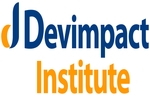|
|
Training on GIS in Health
USD 950 |
Venue: Nairobi, Kenya
In many spheres of human achievements technology has played a vital role by giving us powerful tools for interrogating our world, interpreting what we find and presenting that information. In this digital era GIS once an expensive and specialist skill, has become cheap and more accessible to many people and countries due to falling hardware costs and the availability of high-quality free satellite data and software.
In this Training on GIS in Health, the participants will learn how to apply GIS in public health and epidemiological research. They will learn how to work with spatial and non-spatial data, how to visualize it and map it. Training on GIS in Health will also equip participants with skill and tools for assessing Most at Risk Populations (MARPS) exposure to a range of environmental risks, and methodologies for spatial epidemiological or health risk assessment studies.
Target Participants
Training on GIS in Health targets public health practitioners, epidemiologists, exposure scientists, quantitative health geographers, risk assessors, students.
Course Duration
Online 7 Days
Classroom-based 5 Days
What you will learn
By the end of this course the participants will be able to:
- Investigate spatial patterns of health risks and disease rates.
- Communicate with technical specialists to develop program-specific geographic products.
- Work with and integrate spatial and non-spatial data.
- Undertake spatial analysis of environment and health data.
- Appreciate the role of geographic data and tools for health decision makers.
Course Outline
Module I
- Introduction
- Dr. John Snow example
- Mapping and evidence-based decision.
- National spatial data infrastructure
- Strategic role of geography in health
- spatial data concepts
- Process for using geographic data and tools.
Mobile based data collection for health applications
- Using Mobile Phones for GIS data collection
- Importing spatial data to Quantum GIS
- Using data from databases database management
GIS in health applications
- GIS concepts
- GeoData sources for HIV/AIDS and other health related issues
- Spatial data concepts
- capabilities of GIS
- GIS for health applications
- QGIS interface and map basics
Working with tabular data
- Create new health-care map layers using internal and local data.
- Spatially join and aggregate point data to create choropleth maps.
- Working with spreadsheets data in GIS
- Building and coding the new variables
GIS analysis and mapping techniques
- Prepare incidence and prevalence maps.
- Investigate spatial patterns of uninsured and poor populations.
- Import and project map layers for a local analysis.
- Project maps for health-data analysis at different geographic scales
- Adding feature to GIS data
- Reducing GIS data from large coverage to an area of interest
- Techniques of overlying GIS data
- Extracting subsets of GIS data for mapping
Designing maps for a health study
- Design and build numeric scales for mapping attributes.
- Symbolize numeric scales for polygons using color ramps.
- Symbolize numeric scales for points using size-graduated point markers.
- Map the relationship of two variables.
- Build professional map’ layouts for presentations and reports.
- GIS mapping of most at risk populations (MARPS)
- GIS Mapping of health facilities and health resources
Case study: Studying disease outbreaks.
Training Approach
Training on GIS in Health course is delivered by our seasoned trainers who have vast experience as expert professionals. The course is taught through a mix of practical activities, theory, group works and case studies.
Training manuals and additional reference materials are provided to the participants.
Certification
Upon successful completion of this course, participants will be issued with a certificate on Training on GIS in Health.
Tailor-Made Course
We can also do this as a tailor-made course to meet organization-wide training needs. A training needs assessment will be done on the training participants to collect data on the existing skills, knowledge gaps, training expectations and tailor-made needs.
| Nairobi, Kenya | Dec 09 - 13 Dec, 2024 |
Registration: 08:00:am - 04:00:am
| USD 950.00 + 47.50 (VAT) | (Classroom-based) |
| USD 600.00 + 30.00 (VAT) | (Online) |
Damaris +254714349537
Related Courses
 Training on Public Financial Management and Administration
Training on Public Financial Management and Administration
5 days, 06 - 10 Jan, 2025
Devimpact Institute



